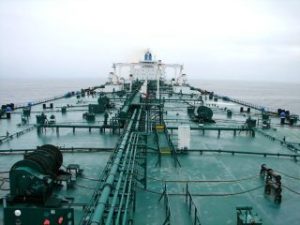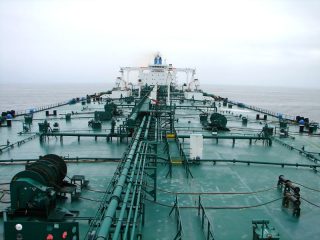 Both Suezmax and VLCC markets could be hit by downward pressure from sustained outages of Nigerian crude oil, resulting from attacks on oil infrastructure by rebel fighters in the Niger River Delta, according to energy and ship brokerage Poten & Partners.
Both Suezmax and VLCC markets could be hit by downward pressure from sustained outages of Nigerian crude oil, resulting from attacks on oil infrastructure by rebel fighters in the Niger River Delta, according to energy and ship brokerage Poten & Partners.
Africa’s largest oil producer has seen its crude oil production and exports slashed as a result of the outages pushing down the country’s oil production below 1.5 mb/d.
What is more, Qua Iboe Terminal, Nigeria’s largest crude oil stream, which exports usually more than 300,000 barrels per day (b/d), has reportedly shut down operations until further notice, with all tanks on the facility emptied of crude. Operations are said to be suspended completely and all personnel evacuated from the terminal, which is operated by ExxonMobil.
Exports of Nigeria’s other large crude oil grades, like Forcados, Bonny Light and Escravos have also been restricted, primarily due to sabotage and attacks on pipelines.
The outages could result in Nigeria loosing the market share in Asia it gained by the middle of 2015, having replaced Saudi Arabia as the largest crude oil supplier to India, as more Indian refiners switched out their long-term contracts with Middle Eastern suppliers to spot oil purchases from Africa.
In addition, the impact might also expand on American importers who have also been making a comeback since U.S. shale production is declining and changing price differentials have made Nigerian imports more attractive again, the brokerage said.
“If the Saudi’s increase production (or divert flows) to regain some of the market share they lost in India, a relatively long-haul (WAF-India) trade will be replaced by a very short-haul trade (AG-India),” Poten & Partners said.
“Chances are that this short-haul trade would be serviced predominantly by Suezmaxes, rather than by VLCCs, which were the preferred vessel for the Nigeria – India movements. The Suezmax situation could be more complicated, depending on the need and source for replacement crudes. The U.S. and Europe have ample crude oil stocks and could conceivably decide to draw down inventories. Continued disruptions of Nigerian production also could drive up oil prices and speed up the return of U.S. shale. Both of these scenarios are rather unattractive for shipping,” the brokerage concludes.
Culled from world Maritime News

